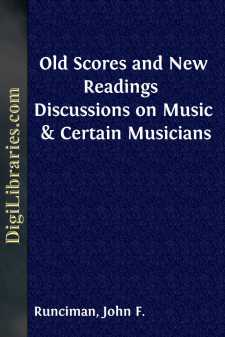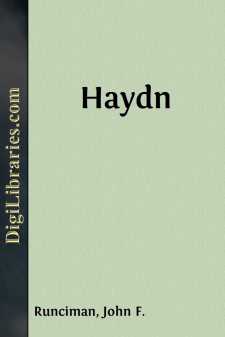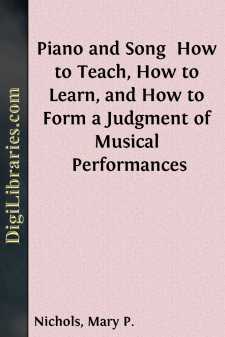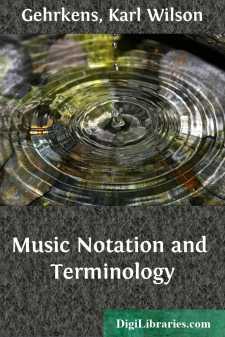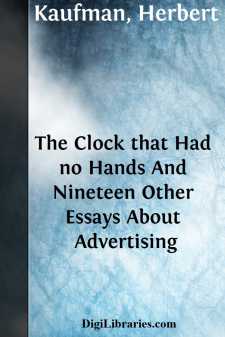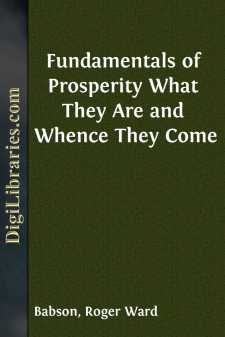Categories
- Antiques & Collectibles 13
- Architecture 36
- Art 48
- Bibles 22
- Biography & Autobiography 813
- Body, Mind & Spirit 142
- Business & Economics 28
- Children's Books 17
- Children's Fiction 14
- Computers 4
- Cooking 94
- Crafts & Hobbies 4
- Drama 346
- Education 46
- Family & Relationships 57
- Fiction 11829
- Games 19
- Gardening 17
- Health & Fitness 34
- History 1377
- House & Home 1
- Humor 147
- Juvenile Fiction 1873
- Juvenile Nonfiction 202
- Language Arts & Disciplines 88
- Law 16
- Literary Collections 686
- Literary Criticism 179
- Mathematics 13
- Medical 41
- Music 40
- Nature 179
- Non-Classifiable 1768
- Performing Arts 7
- Periodicals 1453
- Philosophy 64
- Photography 2
- Poetry 896
- Political Science 203
- Psychology 42
- Reference 154
- Religion 513
- Science 126
- Self-Help 84
- Social Science 81
- Sports & Recreation 34
- Study Aids 3
- Technology & Engineering 59
- Transportation 23
- Travel 463
- True Crime 29
Old Scores and New Readings Discussions on Music & Certain Musicians
by: John F. Runciman
Description:
Excerpt
Many years ago, in the essay which is set second in this collection, I wrote (speaking of the early English composers) that "at length the first great wave of music culminated in the works of Tallis and Byrde ... Byrde is infinitely greater than Tallis, and seems worthy indeed to stand beside Palestrina." Generally one modifies one's opinions as one grows older; very often it is necessary to reverse them. This one on Byrde I adhere to: indeed I am nearly proud of having uttered it so long ago. I had then never heard the Mass in D minor. But in the latter part of 1899 Mr. R.R. Terry, the organist of Downside Abbey, and one of Byrde's latest editors, invited me to the opening of St. Benedict's Church, Ealing, where the Mass in D minor was given; and there I heard one of the most splendid pieces of music in the world adequately rendered under very difficult conditions. I use the phrase advisedly—"one of the most splendid pieces of music in the world." When the New Zealander twenty centuries hence reckons up the European masters of music, he will place Byrde not very far down on the list of the greatest; and he will esteem Byrde's Mass one of the very finest ever written. Byrde himself has rested peacefully in his grave for over three hundred years. One or two casual critics have appreciated him. Fetis, I believe, called him "the English Palestrina"; but I do not recall whether he meant that Byrde was as great as Palestrina or merely great amongst the English—whether a "lord amongst wits," or simply "a wit amongst lords." For the most part he has been left comfortably alone, and held to be—like his mighty successor Purcell—one of the forerunners of the "great English school of church composers." To have prepared the way for Jackson in F—that has been thought his best claim to remembrance. The notion is as absurd as would be the notion (if anyone were foolish enough to advance it) that Palestrina is mainly to be remembered as having prepared the way for Perosi. Byrde prepared the way for Purcell, it is true; but even that exceeding glory pales before the greater glory of having written the Cantiones Sacræ and the D minor Mass. In its way the D minor Mass is as noble and complete an achievement as the St. Matthew Passion or the "Messiah," the Choral symphony of Beethoven or the G minor symphony of Mozart, "Tristan" or the "Nibelung's Ring." It is splendidly planned; it is perfectly beautiful; and from the first page to the last it is charged with a grave, sweet, lovely emotion.
The reason why Byrde has not until lately won the homage he deserves is simply this: that the musical doctors who have hitherto judged him have judged him in the light of the eighteenth-century contrapuntal music, and have applied to him in all seriousness Artemus Ward's joke about Chaucer—"he couldn't spell." The plain harmonic progressions of the later men could be understood by the doctors: they could not understand the freer style of harmony which prevailed before the strict school came into existence. Artemus Ward, taking up Chaucer, professed amazement to find spelling that would not be tolerated in an elementary school; the learned doctors, taking up Byrde, found he had disregarded all the rules—rules, be it remembered, formulated after Byrde's time, just as our modern rules of spelling were made after Chaucer's time; and as Artemus Ward jocularly condemned Chaucer, and showed his wit in the joke, so the doctors seriously condemned Byrde, and showed their stupidity in their unconscious joke. They could understand one side of Tallis. His motet in forty parts, for instance: they knew the difficulties of writing such a thing, and they could see the ingenuity he showed in his various ways of getting round the difficulties. They could not see the really fine points of the forty-part motet: the broad scheme of the whole thing, and the almost Handelian way of massing the various choirs so as to heap climax on climax until a perfectly satisfying finish was reached. Still, there was something for them to see in Tallis; whereas in Byrde there was nothing for them to see that they had eyes to see, or to hear that they had ears to hear. They could see that he either wrote consecutive fifths and octaves, or dodged them in a way opposed to all the rules, that he wrote false relations with the most outrageous recklessness, that his melodies were irregular and not measured out by the bar; but they could not feel, could not be expected to feel, the marvellous beauty of the results he got by his dodges, the marvellous expressiveness of his music. These old doctors may be forgiven, and, being long dead, they care very little whether they are forgiven or not. But the modern men who parrot-like echo their verdicts cannot and should not be forgiven. We know now that the stiff contrapuntal school marked a stage in development of music which it was necessary that music should go through. The modern men who care nothing for rules—for instance Wagner and Tschaikowsky—could not have come immediately after Byrde; even Beethoven could not have come immediately after Byrde and Sweelinck and Palestrina, all of whom thought nothing of the rules that had not been definitely stated in their time. Before Beethoven—and after Beethoven, Wagner and all the moderns—could come, music had to go through the stiff scientific stage; a hundred thousand things that had been done instinctively by the early men had to be reduced to rule; a science as well as an art of music had to be built up....


